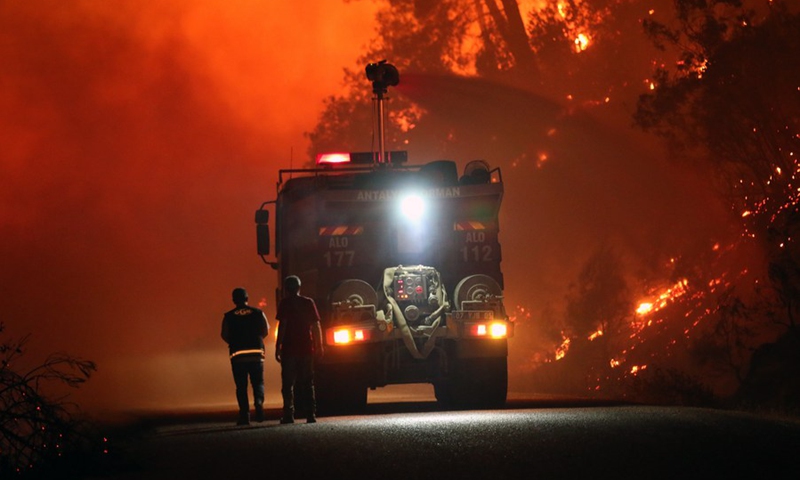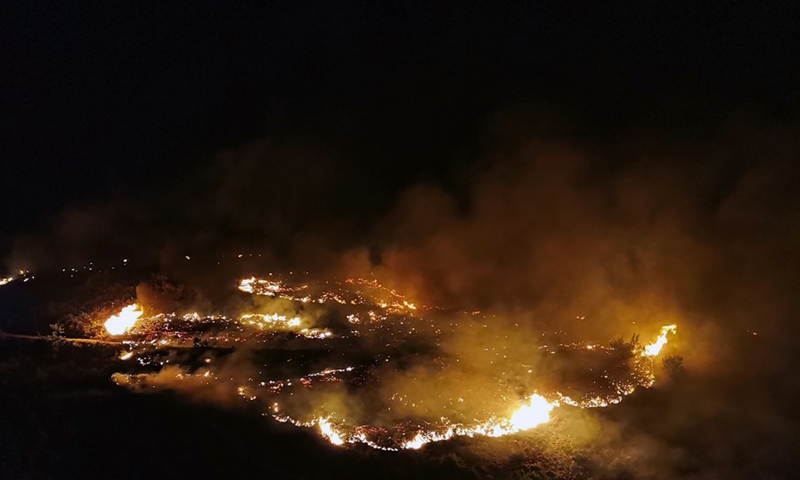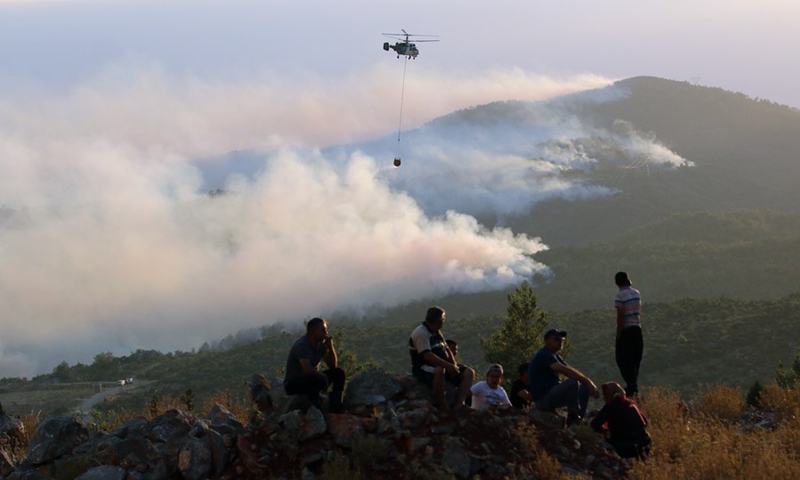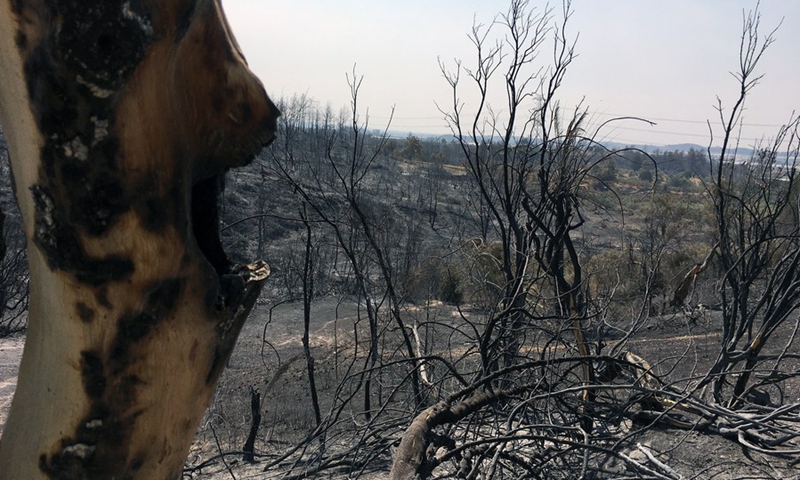
A fire truck battles a raging wildfire near Manavgat in Antalya province, Turkey, on Aug. 3, 2021.(Photo: Xinhua)

A forest fire rages near Manavgat in Antalya province, Turkey, on Aug. 3, 2021.(Photo: Xinhua)

A helicopter pours water on a wildfire near Manavgat in Antalya province, Turkey, on Aug. 3, 2021.(Photo: Xinhua)

Trees are seen burnt by a wildfire near Manavgat in Antalya province, Turkey, on Aug. 2, 2021.(Photo: Xinhua)
The hope of Turkey's tourism recovery in summer from losses caused by the COVID-19 pandemic was dampened amid unprecedented wildfires in southern and southwestern provinces.
The footage showing hundreds of panicked foreign tourists were evacuated by boats from the world-renowned tourism spots of Bodrum and Marmaris along the Aegean coasts made headlines, raising concern among tourism insiders.
Declared as disaster zones, the tourist spots have been badly hit by over 130 forest fires that erupted almost a week ago. Eight people have been confirmed dead.
Coast guard units led the operation, and authorities asked private boats and yachts to assist in evacuation from the sea as new wildfires had erupted behind luxury hotels.
On Tuesday, several fires are still raging with temperatures of 40 degrees Celsius, accompanied by strong winds and low humidity.
Having ravaged landscapes of touristic hotspots, the fires are the biggest on record, and authorities are investigating whether natural causes or sabotage are to blame.
"This is of course a disaster for the ecology and also a new blow for the sector," Esra Kilic, a tour operator from the capital city Ankara, told Xinhua.
"The wildfires are mostly in the most touristic areas near the Aegean and Mediterranean coasts of Turkey," she said, indicating that there are cancellations from both domestic and foreign visitors.
"It is still early to assess the impact of these fires on the tourism sector, but the consequences will be felt soon," the professional said.
"We have lost 10 percent of our visitors in our hotels," Bulent Bulbuloglu, head of the South Aegean Hoteliers Association, told the local press.
"There has been a notable decrease in the number of our Russian and Ukrainian guests following the fires. They have left the hotel," said Sahin Sevgin, an employee from a five-star facility located near the Mediterranean resort town of Manavgat, the worst-hit area.
"We were expecting a much better season this year, but wildfires disrupted our plans," he added.
Last year, Turkey's tourism sector was hit hard by the COVID-19 pandemic. Arrivals dropped by 69 percent from 2019 to 2020, and revenues fell from 34.5 billion to 21.2 billion U.S. dollars. Turkey expects 20 billion U.S. dollars in tourism revenues in 2021.
